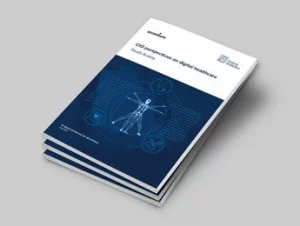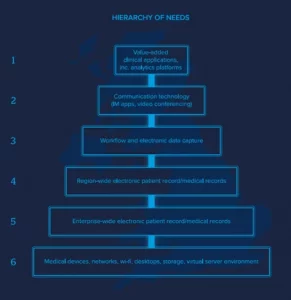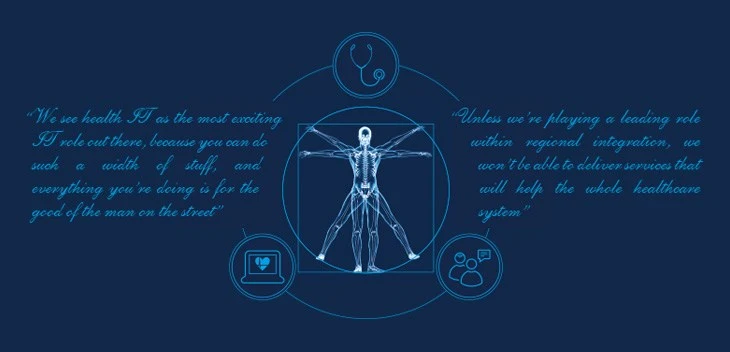CIOs must take ownership of both clinical and operational elements of digital healthcare transformations
 Oxford Analytica, in partnership with Accenture Health, spoke to 33 Chief Information Officers across the healthcare sector in seven countries to get their perspective on the future of digital health. We produced four regional reports giving the regional perspective of CIOs in:
Oxford Analytica, in partnership with Accenture Health, spoke to 33 Chief Information Officers across the healthcare sector in seven countries to get their perspective on the future of digital health. We produced four regional reports giving the regional perspective of CIOs in:
- The United Kingdom and Ireland (download report, 6MB)
- Brazil (download report, 2MB)
- Saudi Arabia (download report, 2MB)
- Norway, Sweden and Finland (download report, 2MB)
The overall findings are presented in our executive summary (download PDF, 0.5MB).
The digital health transformation is a major priority for all healthcare CIOs we surveyed, and feeds into three key objectives that enhance both business performance and health outcomes: reduced costs, increased patient engagement, and improved patient experience.
While these goals seem to be shared across the management board, what is very pertinent is the fact that CIOs’ approaches to these priorities are strongly contingent upon their role emphases – in other words, how they view themselves, and how they are viewed by other stakeholders on the management board. The CIOs we spoke to sit on a spectrum, based primarily on their individual skillsets, roles and mandates within their organisations:
- At the one end are executive CIOs – the visionaries of digital transformation who see themselves as change managers and innovators first, and technologists second.
- At the other are operational CIOs who are less concerned with the end-goal of digital transformation, but focus on delivery of digital solutions with a given array of resources. More caretakers than visionaries, they focus on operational excellence within their domains but don’t look far beyond that.
 CIOs need to become the designers and architects of today’s and tomorrow’s digital health solutions, and the evangelists of change for their organisations. Demands on CIOs are increasing. To drive and manage the demands of digital healthcare transformation properly, they must take ownership of, and account for, both clinical and operational considerations.
CIOs need to become the designers and architects of today’s and tomorrow’s digital health solutions, and the evangelists of change for their organisations. Demands on CIOs are increasing. To drive and manage the demands of digital healthcare transformation properly, they must take ownership of, and account for, both clinical and operational considerations.
Methodology
We interviewed CIOs in each of four regions: the UK and Ireland, Brazil, Saudi Arabia, and the Nordic countries (Norway, Sweden and Finland). The interviews sought to prove or disprove three main hypotheses:
- CIOs need to transform their organisations to meet consumers’ growing demands, and to leverage digital technology to lower operational costs;
- CIOs need to get stakeholders, and especially doctors, on board for digital health, in order to succeed; and
- CIOs need to take on a new role, adopt new skills and get resources to lead a successful digital health transformation.
The key findings were then collated into four reports, each covering one region.



